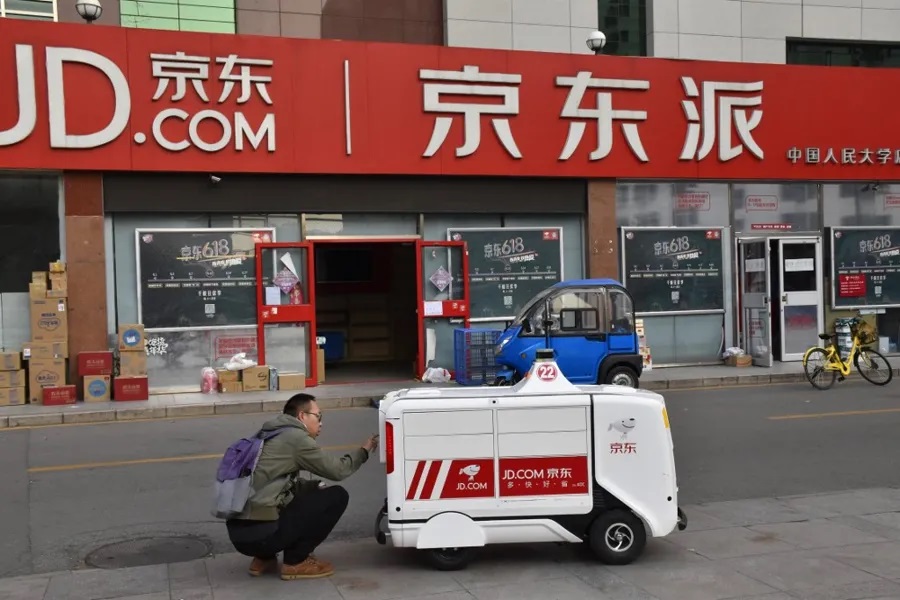(ATF) Amid global economic and political uncertainties such as Covid-19 and the US-China tension, China has formulated a near-term plan to expand demand and “nurture the formation of a strong domestic market”.
The measures include reviving the restaurant and tourism industries, moving classes and sporting events online, encouraging families to replace their home appliances, and helping exporters to sell to domestic consumers.
The utilization of 5G and virtual reality and augmented reality technologies for moving various offline services online also feature in the plan.
“The Work Plan for Expanding Domestic Demand and Promoting Consumption In the Near Future”, was released on Thursday on the website of the National Development and Reform Commission (NDRC), China’s top economic planner. The NDRC along with 13 other government departments including finance, education, public health, sports, education, and, culture and tourism, will oversee the measures’ implementation, according to the announcement.
Data from China’s National Bureau of Statistics show, so far this year, the recovery in consumption has lagged behind production amid job losses and economic uncertainties brought about by the coronavirus pandemic.
The Statistics data revealed that while the nation’s GDP increased by 0.7% year-on-year in the first three quarters, consumer retail sales plunged by 7.2%, although fuelled by social distancing and aggressive e-commerce efforts, online retail sales jumped 9.7%. The restaurant industry, though, was worst hit with sales sliding 23.9% year-on-year.
To spur spending, both the Chinese e-commerce giants Alibaba and JD.com, kicked off the “Singles’ Day” event -the largest annual shopping event- earlier this year. Deals for big-ticket items such as apartments, automobiles and home decoration are featured in the sale that will also offer nearly 800,000 apartments, with up to 1 million yuan ($149,400) of discount for some.
Stimulating demand
The Work Plan outlines 19 measures in four main areas, including promotion of online access of offline services, developing new service models, upgrading physical goods consumption, and increasing support to manufacturers.
Measures to promote online access of offline services include enabling medical insurance coverage to payments for remote medical consultation, and expansion of online sporting events, online education courses, online museums, and online community services. The measures also include cutting fees for online sellers on e-commerce platforms.
The Work Plan also encourages new service models such as street food stalls, package deals and annual passes for sightseeing attractions, and information service experience centers.
Besides, the Plan, through supporting land use, permit and reconstruction, will offer community services such as breakfast shops, domestic helper centers, hairdressers, senior homes and day care centers in districts where such services are lacking.
Measures to upgrade physical consumption will include providing reimbursement of elevator installation fees to residents in old buildings from the housing provident fund, allowing parking lot operators to run car maintenance and express delivery businesses, and encouraging families to replace their old home appliances. The government will also create a national emergency supply list to guide families to prepare emergency medical kits in the fall and winter seasons.
To support the manufacturing industry the government, according to the Plan, will support the deployment of 5G network base stations, open up industries for foreign investment, help export companies sell their products to domestic consumers, and provide stronger support to private, small, micro-sized, and foreign-invested enterprises.
Consumption recovery long way off
“Long-term speaking, consumption premiumisation is a definite trend and will be the key growth driver of China’s economy,” Tao Jin, deputy director of the Macroeconomic Research Center under Suning Institute of Finance, said in a commentary.
According to him consumption growth ultimately depends on the growth of consumers’ income and employment, because this year’s pandemic has made a huge impact on their spending. “Consumption has not yet recovered. Occasional stimulus methods such as consumption coupons do not solve the root cause of the issue,” he said.
“In addition to implementing ‘six guarantees’ policies such as employment guarantee, in the next five years attention should also be given to ensuring people’s livelihood and social equity. For example, the gradual relaxation of the registered residence system will help to further tap consumption potential,” he added.
Expanding on the slower consumption recovery, Tao said that the consumption level of the migrant population had been 16%-20% lower than the Chinese cities’ registered resident population, that has reached 290 million.
According to Tao, if the migrants are provided with registered residence, they can generate huge demand for durable consumer goods and services such as housing, automobiles, home appliances, medical care and education.
“Consumption recovery still has a long way to go,” Xue Hongyan, vice president of Suning Institute of Finance, agreed, adding that allowing more street vendors could also provide more confidence in employment.
As the government curbs people’s investment in housing, more wealth management channels should be provided, while improvements in medical insurance and pension systems would encourage consumers to save less and spend more, he said.
SEE ALSO:
Wheels within wheels | Explainer: What we know about China’s ‘dual circulation’ economic strategy
Why China’s official data don’t add up
With Prada to 1-yuan deals, Alibaba kicks off Chinese Black Friday early
























